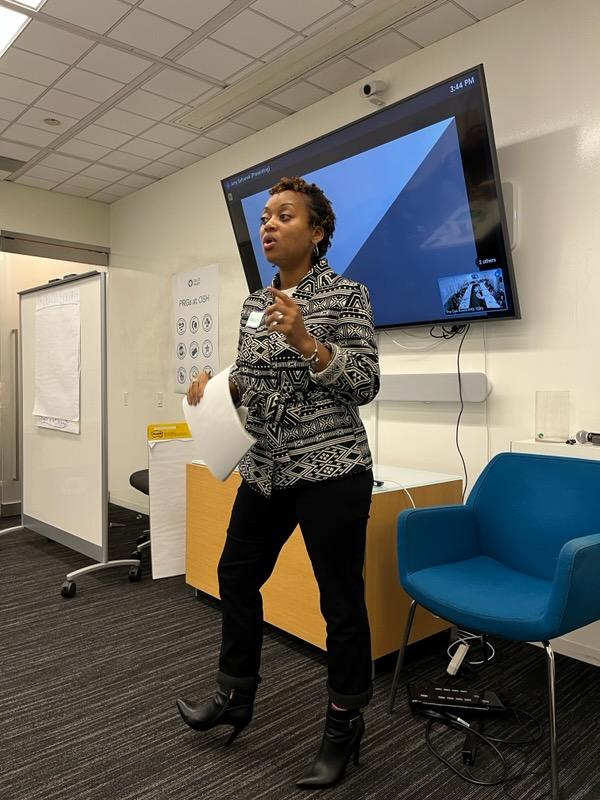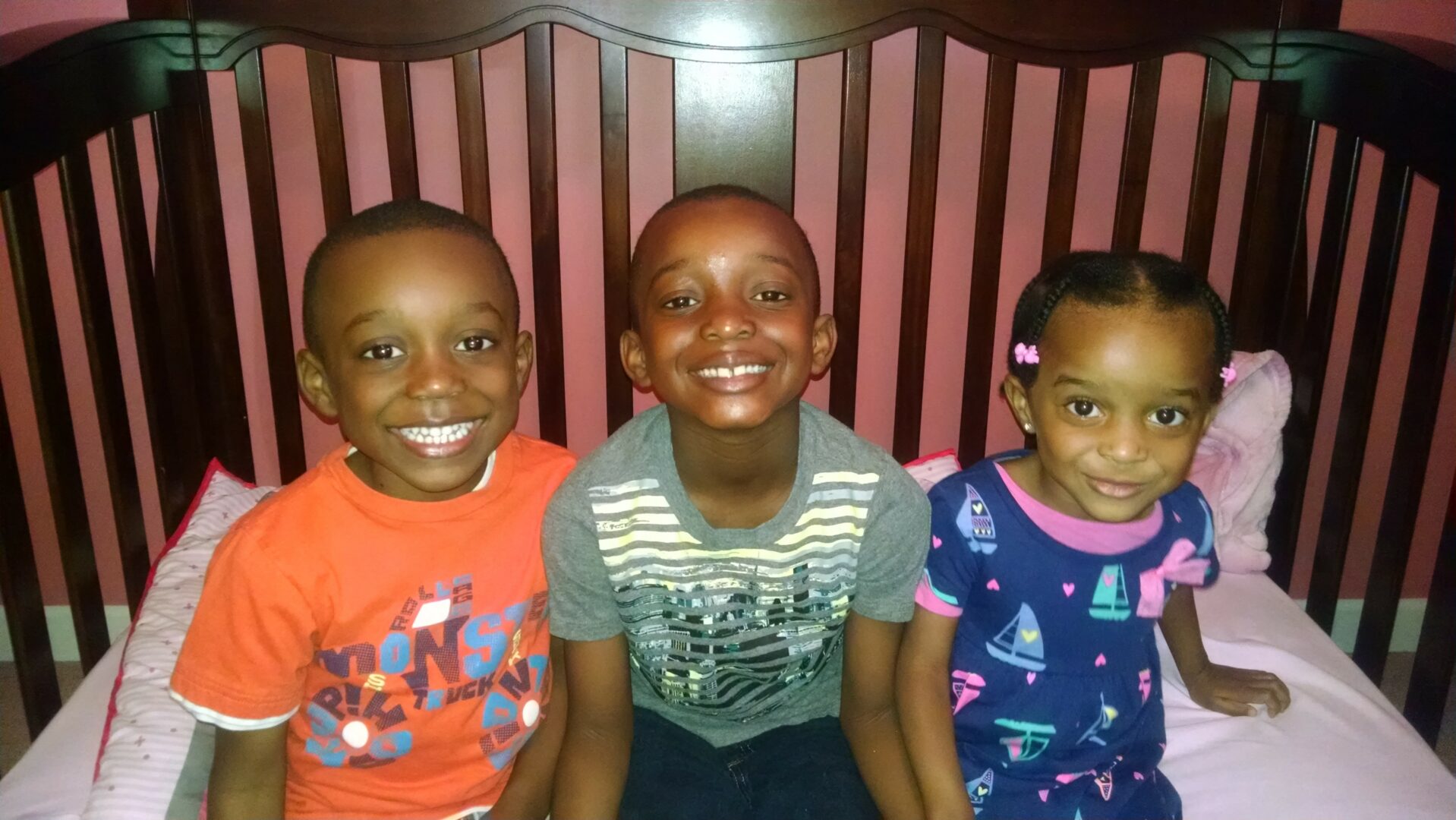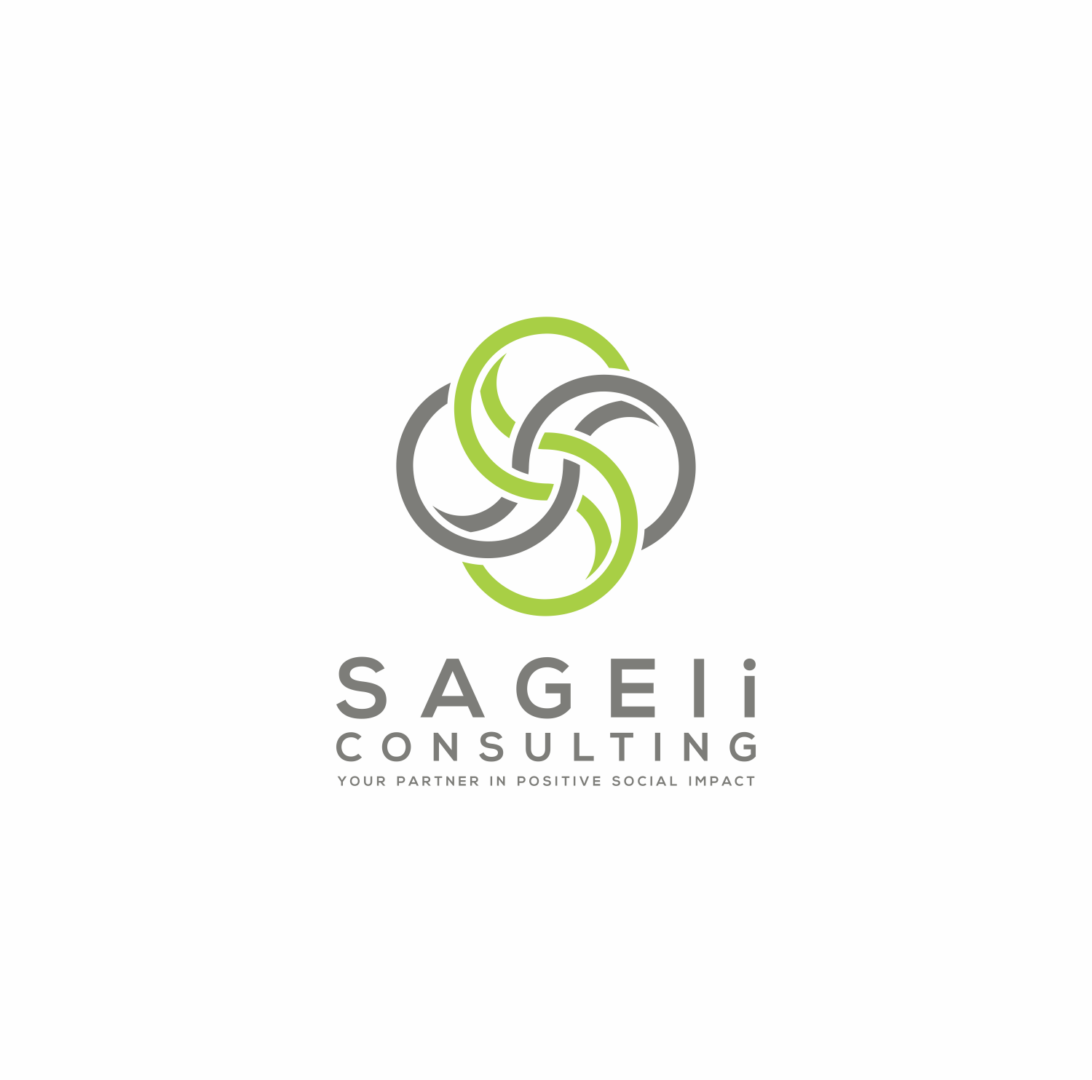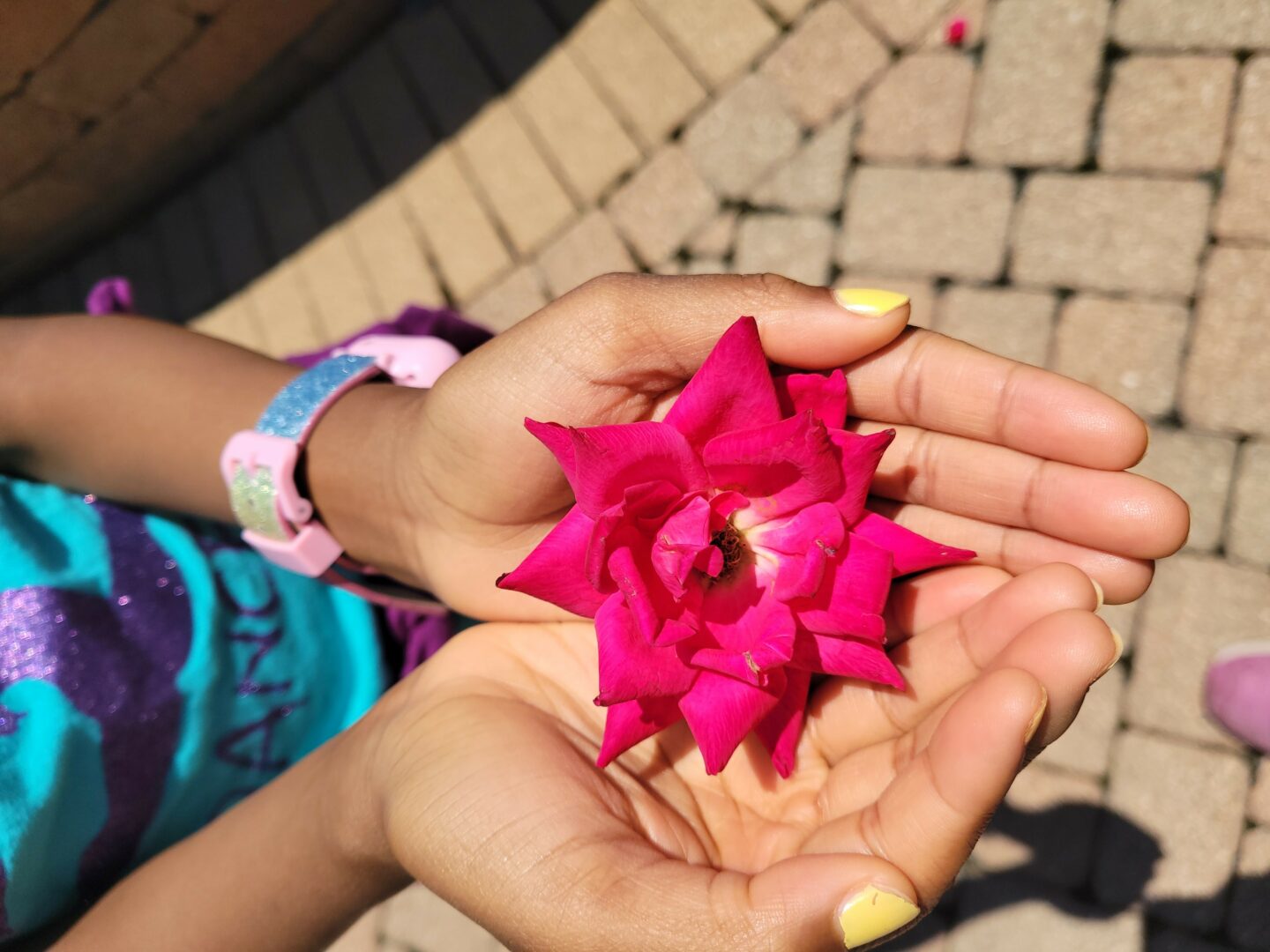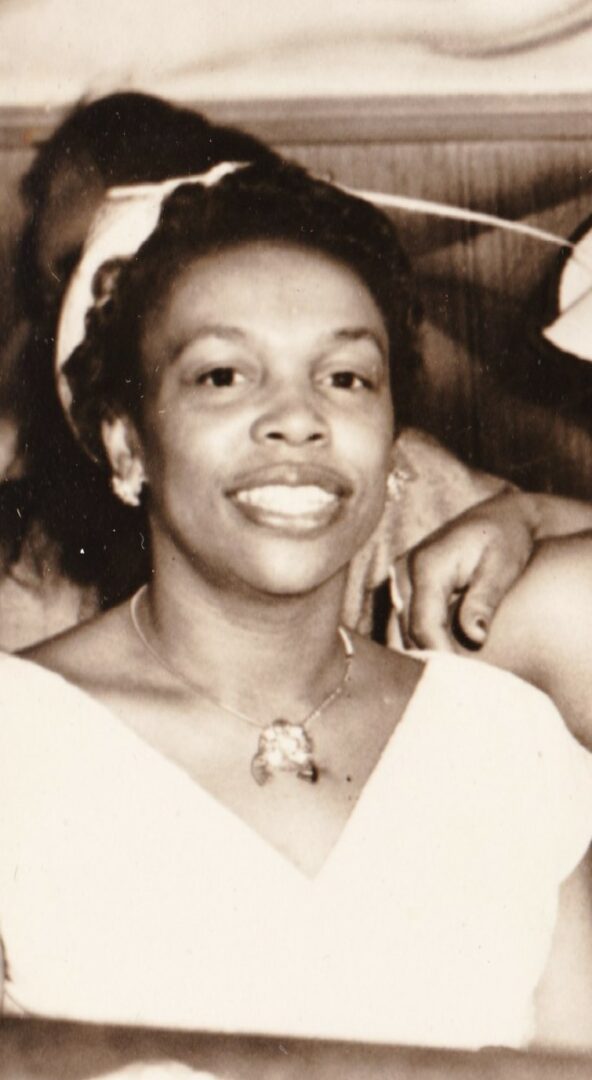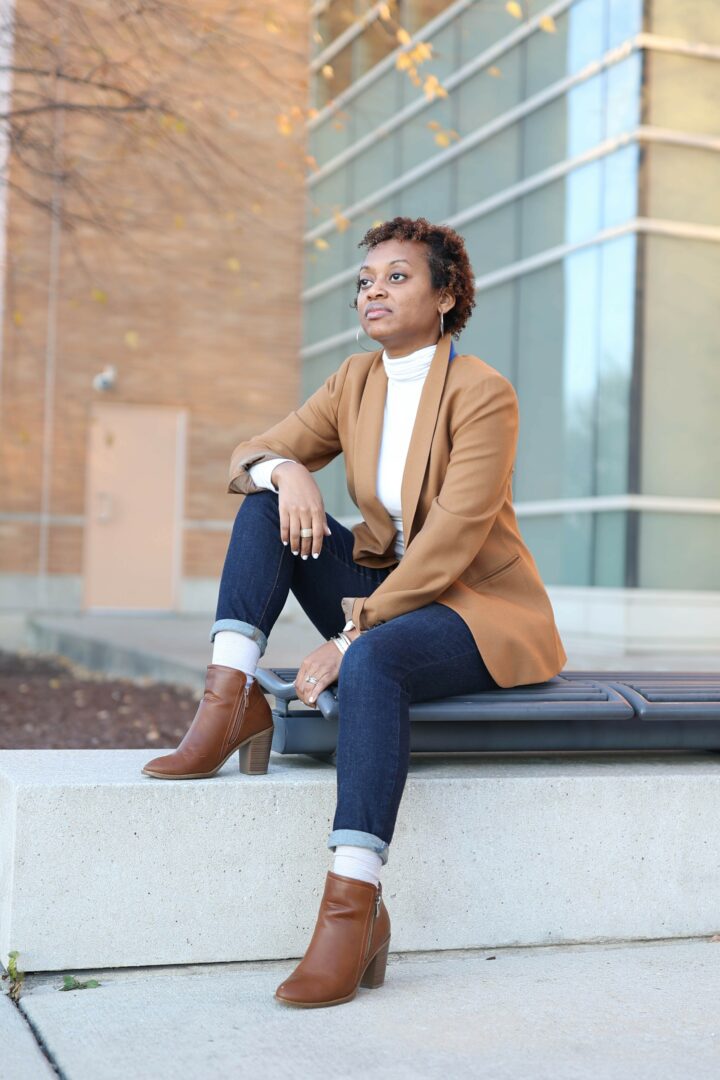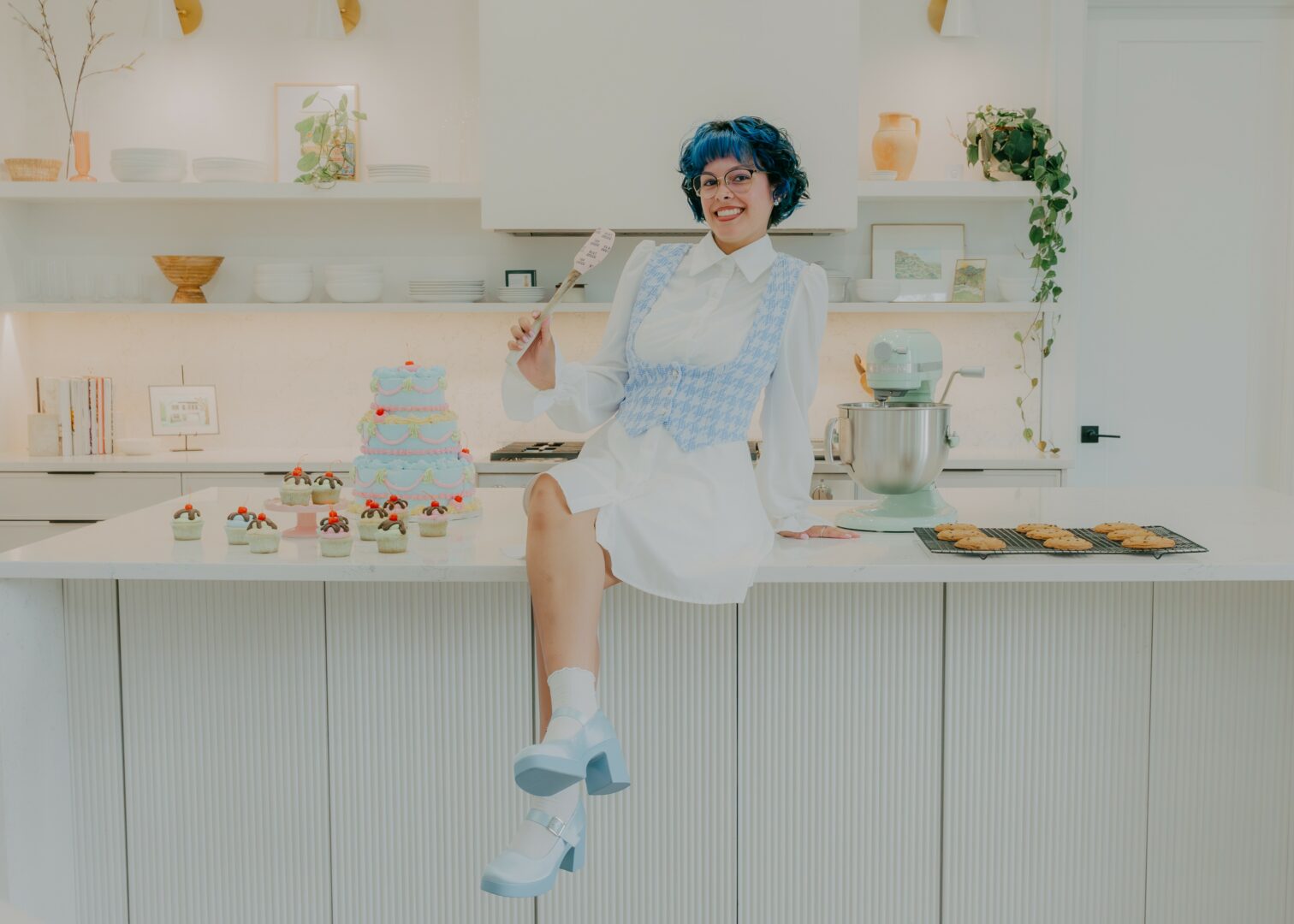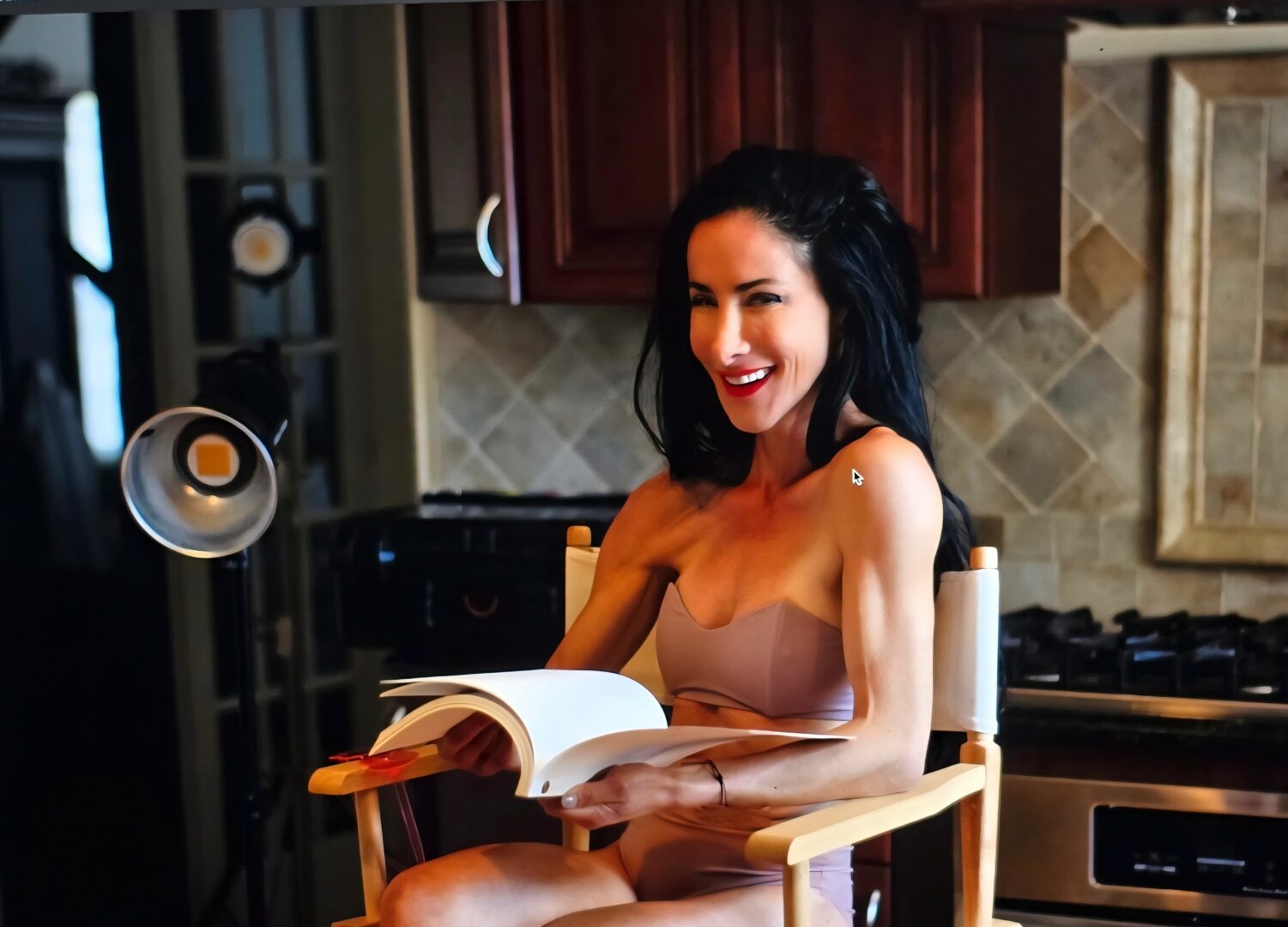We recently connected with Stacey D. Mitchell and have shared our conversation below.
Hi Stacey D., we’re so appreciative of you taking the time to share your nuggets of wisdom with our community. One of the topics we think is most important for folks looking to level up their lives is building up their self-confidence and self-esteem. Can you share how you developed your confidence?
There were two primary conditions that helped me develop my confidence and self-esteem, but my assignments were the greatest drivers of my confidence.
To paint the picture of the conditions that shaped my confidence, I have to go back to my childhood. My grandmother, Theresa Potts played a very important role in my upbringing. She was born in Columbus, GA in 1916 to a mother who died by the time my grandmother was five years old and to a father who had little-no involvement in her life. From the point of her mother’s death, my grandmother was raised by her land-owning yet illiterate grandmother (circumstances our family still does not fully understand). She did not like her daughter’s choice in men, and was not thrilled to be strapped with the responsibilities of raising children after her daughter’s death. Therefore, in turn, my grandmother’s grandmother raised her with a good measure of bitterness because if it all.
My grandmother went on to mother 8 children of her own, raising them in Cabrini Green and different parts of the South Side of Chicago until she settled in the South Chicago neighborhood just west of Indiana. Because of her own upbringing and many more life experiences, I imagine, my grandmother raised her children with an iron fist. When I came along, my grandmother was 65 years old and softer. Her edges weren’t as sharp. Though her approach was very pragmatic (“You ain’t got the be the smartest one in the room, just learn how to follow instructions.” or Just do what you are supposed to do, and do it right.”), she praised me and celebrated my successes generously, small as they were at the time.
That simple cycle (1. There’s a thing that’s hard for you to do. 2. Do it well. 3. Watch what happens. 4. Repeat), built in me the belief that I could just try stuff. Further, it showed me that, when I did just try my best, I mostly accomplished it. But more importantly, when I didn’t, it was OK. The loss was not terminal. Some of my credits at the time included tying my shoes; learning to ride my bike; jumping Double Dutch (a pastime I still enjoy today); being accepted into one of the nation’s most prestigious public high schools from which Mrs. Michelle Obama also graduated, Whitney M. Young Magnet High School.
My grandmother also taught me that through Christ Jesus, all things were possible.
As I began my career and encountered obstacles that were even more difficult than tying my shoes with even higher stakes, my assignments really made me bold. I recall one assignment when I was tasked with finding ways to stop the mass attrition of Black staff members at a particular organization. I knew that if I didn’t speak up and share critical information and perspective with those who could influence these outcomes, Black staff members could lose their livelihoods and the credibility of the organization could be irreparably damaged. This made it easy to speak up as the one of the youngest, least experienced and very few brown faces in the rooms I occupied.
Another assignment was for me to grow a team from 8 to 26 and lead that team to achieve strong outcomes with their students as a person who had never managed anyone before. I wasn’t afraid to have difficult conversations with staff members or make hard decisions, because I knew that the students deserved the best that I had to offer, which still, often times was not enough.
And one seminal assignment was to stand up a People team at a burgeoning organization. In this organization, I was an outsider. I did not have the relationships that many of those had who had started the organization. I hadn’t worked in the sector that the organization focused on. Yet, I learned what was required for the role, and I shared hard feedback, asked tough questions and sought accountability of myself and others. I knew that staff members were looking to me, among others, to hold the line for fairness and quality, factors upon which culture hinged, and that was not negotiable. So I found my voice as an advocate for others in that context.
And while I failed many, many times, I know that at any given time I was doing my best, and that is truly all that I can actually do. I knew that others were counting on me, so I had to act. This may be considered confidence by some, but I actually think it is a strong sense of personal responsibility. So, I do what I think is best based on the information available to me at a given time, as unpopular as it might be, come what might. I celebrate when things work out, and I can learn from my errors and forgive myself when they don’t…less-so because of confidence, but because I have to in order to persist.
Thanks, so before we move on maybe you can share a bit more about yourself?
I am a cisgender Black woman, wife, mother, sister, auntie, friend, learner and lover of the Lord from a low-income background on the South Side of Chicago. I am currently based in the Chicagoland area with my husband and our three children, though I travel to support my clients’ needs. I enjoy connecting with people, learning, skating, reading, dancing, and watching political dramas! Given my identities and interests, I have experienced and witnessed the ways in which people can be treated unfairly. I have also experienced and witnessed how those same people, when equipped with unwavering encouragement and practical support, can soar.
So that’s what I do. I help people soar, through my company SAGEli <sayj -=”” lee=””> Consulting. Put a different way, I help people reach their highest potential through helping them develop the knowledge, mindset and skill necessary to perform the functions of their role and/or meet the goals ahead of them. Additionally, I help shape the systems and organizations that can facilitate individuals being their best. In particular, it is important for me to support people and organizations who are pursuing positive social impact. The social impact part is important because as long as our society and world stays the same (e.g. not enough space and warmth for different kinds of folks, resources distributed inequitably, limited access to healthy foods across the globe, restrictions on self-expression and art, inability to find and maintain jobs, subpar childcare, suppression of faith and ways to worship, etc.) there will always be groups of people who have a harder chance to reach their highest potential because of who they are.
In service of this, I help leaders and organizations set vision and conduct strategic planning; develop talent plans to attract, develop and retain exceptional leaders; design core values and EDI/antiracism points of view with aligned implementation plans; provide 1:1 coaching; deliver differentiated skills trainings, such as Strategic Planning, Managing Through Layers, Giving and Receiving Feedback Effectively, Active Listening, Identifying and Addressing Microaggressions, Prioritization and Delegation, Multicultural Competence in Hiring, Planning and Conducting Effective Meetings, Navigating Change in the Workplace, Collaborating Across Lines of Difference, etc.
These days, I am most excited about the writings I have begun to share about my observations about the workplace. Over the last 20 years or more, I have worked with dozens of individuals and companies, and I am just now beginning to distill and share my observations in writings that others might engage with. A full list of the services I offer, my points of view on the workplace and more are available here: https://www.sageliconsulting.com
</sayj>
There is so much advice out there about all the different skills and qualities folks need to develop in order to succeed in today’s highly competitive environment and often it can feel overwhelming. So, if we had to break it down to just the three that matter most, which three skills or qualities would you focus on?
Area 1 – Humility: I know what I know, and I mostly know what I don’t know. I also try to be open to the possibility that I actually don’t know something that I think I might know. (Say what now?!!?) I recognize the limitations of my own experiences, and I am enriched by learning about the experiences of others. ADVICE: I would just advise people to actively listen with a truly open heart and mind….not for agreement or rebuttal…but for deep understanding.
Area 2 – Commitment to Excellence: When I am tasked with a thing, I really try to learn about it, understand the purpose, consult with others and produce an excellent product. This is different from perfection. ADVICE: Try to produce outcomes and collaborate with people in ways that would make the people who are rooting for you proud (on Earth or beyond) and that you feel is a strong representation of who you are as a professional. This may require seeking help.
Area 3 – Center Humanity: Growing up in a low-income community…and now living outside of one, there is one thing I know: You never really know what people are going through. They could be unhoused. They could be abused. They could be celebrating an unannounced addition to their family. They could only have 10 cents to their names. They could be mourning a loss. I think, at their core, most people want to do the right thing. ADVICE: Try to treat everyone with so much care and respect and patience and kindness, which we all deserve but don’t get as often as we should.
Thanks so much for sharing all these insights with us today. Before we go, is there a book that’s played in important role in your development?
The Bible has shaped me most. Second to that, Between the World and Me by Ta-Nehisi Coates has most profoundly shaped me. This book was really important for me at the time in my life that I read it because it explored many of the contradictions that Black people are taught. Case in point: If you work hard and do well in school, you can be anything you want to be. This isn’t true for Black people writ large, nor for other historically marginalized groups. Mr. Coates details in painful specificity the murder of his friend, Prince Jones, and its impact. Prince Jones had done all the right things. Among other things, he was from a “good family.” He had gone to and completed college successfully. Yet, the police assumed he was a criminal and killed him when he was 25. I had done some exploration of the contradiction this book exposed, but this book brought it to the fore for me in ways that hadn’t crystalized for me.
And, at the risk of ruining it for those who have not read it, the main point, articulated at the end of the book, put into words a reality that I had been living. And it also helped reframe that reality. At the end of the book, he summarizes life as beautiful struggle. He names that the real opportunity fur us it to actively find beauty in the struggle as an antidote to the challenges of life. There I was, slogging along, raising three small children, responsible for high-stakes work, leading a robust team. Getting up every day doing what needed to be done because it needed to be done…because the Ancestors had done it…because neither of us really had a choice, through for extremely different reasons. And Mr. Coates offered me a choice to find beauty in the slog – in the making of breakfast, day after day. In what seemed like the endless sleepless nights and resulting profound sleep deprivation. In what felt like the daily fight for never-enough-for-students-and-those-who-serve-them at work. In the late night talks with loved ones to work out this problem or that one.
That, truly is what life is about, and I hope to help individuals and companies find beauty in the struggle they are engaged in for a better self and world.
Contact Info:
- Website: sageliconsulting.com
- Linkedin: linkedin.com/staceydmitchell
